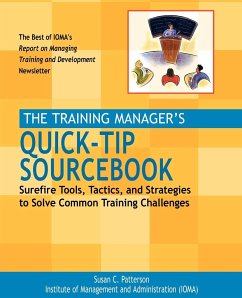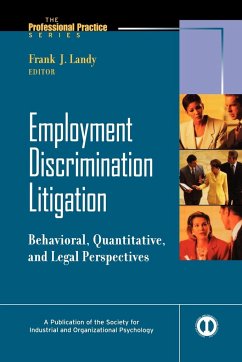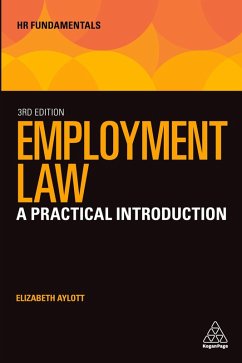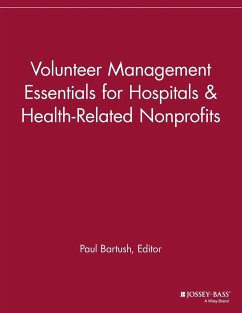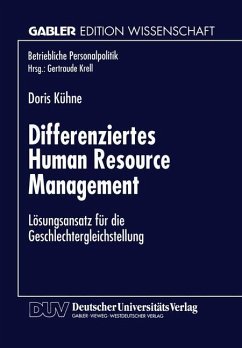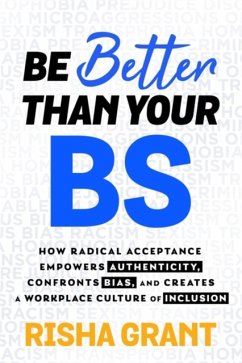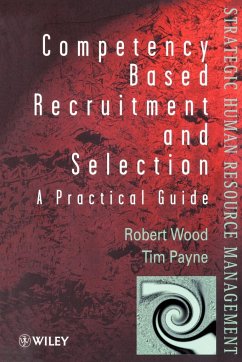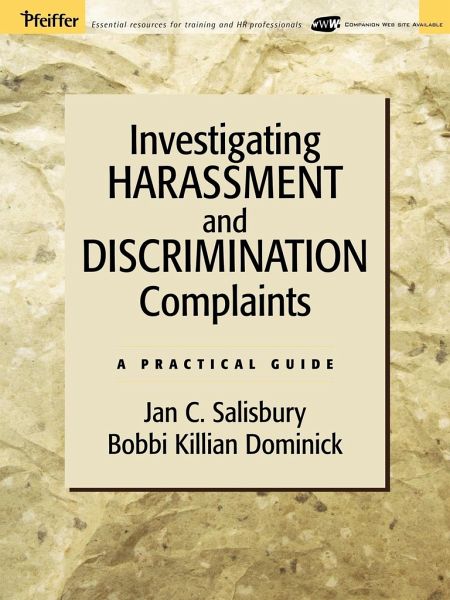
Investigating Harassment and Discrimination Complaints
A Practical Guide
Versandkostenfrei!
Versandfertig in über 4 Wochen
74,99 €
inkl. MwSt.

PAYBACK Punkte
37 °P sammeln!
Investigating Harassment and Discrimination Complaints is a hands-on guide for human resource professionals who are called upon to conduct a legally sound investigation into harassment, discrimination, or retaliation complaints. This important manual blends the information investigators need to develop the skills and competencies that are critical to successfully investigating harassment and discrimination complaints with a proven framework for undertaking the investigation itself. Investigating Harassment and Discrimination Complaint s walks the investigator through the process of conducting ...
Investigating Harassment and Discrimination Complaints is a hands-on guide for human resource professionals who are called upon to conduct a legally sound investigation into harassment, discrimination, or retaliation complaints. This important manual blends the information investigators need to develop the skills and competencies that are critical to successfully investigating harassment and discrimination complaints with a proven framework for undertaking the investigation itself. Investigating Harassment and Discrimination Complaint s walks the investigator through the process of conducting a successful investigation and includes information about:
The critical legal aspects of conducting an investigation
How diversity affects harassment
What needs to be in place prior to an investigation
Creating a step-by-step plan
How to properly document an investigation, and
Administering discipline for policy violations and remedies for aggrieved employees
The critical legal aspects of conducting an investigation
How diversity affects harassment
What needs to be in place prior to an investigation
Creating a step-by-step plan
How to properly document an investigation, and
Administering discipline for policy violations and remedies for aggrieved employees







